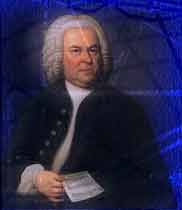This is one of Bach’s best-known solo cantatas, and one of the relatively few non-religious cantatas composed by the master. It is scored for solo soprano, three solo instruments (oboe, violin, bassoon), strings and continuo.
It begins with an introspective opening adagio (“Weichet nur, betrübte Schatten”–“Depart melancholy shadows”), with a sinuous duet between the solo oboe and soprano against a background of rising chords in the strings. The following movements describe the sensations, pleasures and fulfillment of love in a series of descriptives recitatives and arias.
Some of the images evoked include the world reborn, and the sun god Phoebus Apollo racing above and inspired to be a lover himself (“Phöbus eilt”); love wafting through the air like spring breezes in a flowery meadow (“Wenn die Frühlingslüfte”); the joy of love, and how to practice it (“Sich üben im Lieben”).
The Cantata ends in a lilting Gavotte, with the hope of a fruitful and contented married future (“Sehet in Zufriedenheit”).
Cantata No. 202
"Wedding" Cantata
By Johann Sebastian Bach






